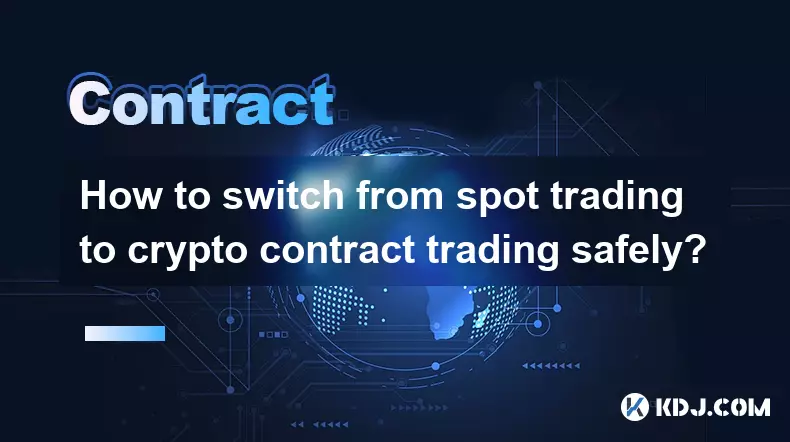-
 bitcoin
bitcoin $87959.907984 USD
1.34% -
 ethereum
ethereum $2920.497338 USD
3.04% -
 tether
tether $0.999775 USD
0.00% -
 xrp
xrp $2.237324 USD
8.12% -
 bnb
bnb $860.243768 USD
0.90% -
 solana
solana $138.089498 USD
5.43% -
 usd-coin
usd-coin $0.999807 USD
0.01% -
 tron
tron $0.272801 USD
-1.53% -
 dogecoin
dogecoin $0.150904 USD
2.96% -
 cardano
cardano $0.421635 USD
1.97% -
 hyperliquid
hyperliquid $32.152445 USD
2.23% -
 bitcoin-cash
bitcoin-cash $533.301069 USD
-1.94% -
 chainlink
chainlink $12.953417 USD
2.68% -
 unus-sed-leo
unus-sed-leo $9.535951 USD
0.73% -
 zcash
zcash $521.483386 USD
-2.87%
Bitget contract trading process
By following these steps, you can effectively navigate contract trading on Bitget, capitalize on market fluctuations, and potentially generate substantial returns from your cryptocurrency investments.
Nov 10, 2024 at 04:41 pm

Bitget Contract Trading Process: A Comprehensive Guide for Beginners
Bitget, a leading cryptocurrency exchange, offers a robust contract trading platform that enables users to speculate on the future prices of various cryptocurrencies. This guide will provide a step-by-step overview of the contract trading process on Bitget, empowering you to navigate this exciting and potentially lucrative market.
Understanding Contract Trading
Before delving into the trading process, it is crucial to understand the concept of contract trading. In contract trading, investors enter into agreements to buy or sell an underlying cryptocurrency at a specified price on a future date. These contracts derive their value from the underlying cryptocurrency's price fluctuations.
Step 1: Opening an Account and Funding
To participate in contract trading on Bitget, you need to create an account and fund it with sufficient capital. The account registration process involves providing personal information and verifying your identity. Once your account is verified, you can transfer funds into it using various methods such as bank transfers, credit/debit cards, or cryptocurrencies.
Step 2: Choosing a Trading Pair and Contract Type
Bitget offers a wide range of cryptocurrency trading pairs for its contracts. Each pair represents a contract that tracks the price of a specific underlying cryptocurrency. After selecting your desired trading pair, you need to determine the type of contract you wish to trade. Bitget provides two main types:
- Futures contracts: These contracts obligate the buyer to purchase or the seller to deliver the underlying cryptocurrency at a specified time in the future.
- Options contracts: These contracts grant the buyer the option to buy or sell the underlying cryptocurrency at a predetermined price within a specified time frame.
Step 3: Placing an Order
Once you have selected your trading pair and contract type, you can place your order. Bitget's trading platform provides various order types tailored to different trading strategies:
- Limit order: This order allows you to specify the desired buy or sell price at which your order will be executed.
- Market order: This order executes your trade immediately at the prevailing market price.
- Stop order: This order becomes active when the underlying cryptocurrency reaches a predefined price point.
Step 4: Managing Your Position
After placing your order, you can monitor its performance and make adjustments as needed. Bitget offers a range of risk management tools, including stop-loss orders and take-profit orders, to help you protect your capital. You can also adjust the leverage on your position to increase or decrease your exposure to the market.
Step 5: Closing Your Position
When you are satisfied with the performance of your position, you can close it. Closing your position involves reversing the initial trade, such as selling a long position or buying out a short position. Once you close your position, your profit or loss is realized, and you are no longer exposed to the price fluctuations of the underlying cryptocurrency.
Step 6: Withdrawal of Earnings
Once you have closed your trades and realized your profits, you can withdraw your earnings from Bitget. The exchange supports a wide range of withdrawal methods, allowing you to transfer your funds to your bank account, credit/debit card, or cryptocurrency wallet.
Disclaimer:info@kdj.com
The information provided is not trading advice. kdj.com does not assume any responsibility for any investments made based on the information provided in this article. Cryptocurrencies are highly volatile and it is highly recommended that you invest with caution after thorough research!
If you believe that the content used on this website infringes your copyright, please contact us immediately (info@kdj.com) and we will delete it promptly.
- Bitcoin Faces Identity Crisis as Speculators Flock to Prediction Markets and Ultra-Short Options
- 2026-02-02 00:30:06
- MGK and Jelly Roll Honor Ozzy Osbourne at Pre-Grammy Gala, Sparking Fan Frenzy
- 2026-02-02 00:50:02
- Super Bowl Coin Flip: Unpacking the Prediction Power of Heads or Tails
- 2026-02-02 01:30:01
- Litecoin Price Cracks 9-Year Floor Amidst Market Breakdown: What's Next for the OG Crypto?
- 2026-02-02 01:20:02
- Crypto News, Cryptocurrency Markets, Latest Updates: A Topsy-Turvy Start to 2026
- 2026-02-02 01:15:01
- New York Minute: LivLive Presale Ignites, While Solana Navigates Choppy Waters
- 2026-02-02 01:15:01
Related knowledge

How to close a crypto contract position manually or automatically?
Feb 01,2026 at 11:19pm
Manual Position Closure Process1. Log into the trading platform where the contract is active and navigate to the 'Positions' or 'Open Orders' tab. 2. ...

How to understand the impact of Bitcoin ETFs on crypto contracts?
Feb 01,2026 at 04:19pm
Bitcoin ETFs and Market Liquidity1. Bitcoin ETFs introduce institutional capital directly into the spot market, increasing order book depth and reduci...

How to trade DeFi contracts during the current liquidity surge?
Feb 01,2026 at 07:00am
Understanding Liquidity Dynamics in DeFi Protocols1. Liquidity surges in DeFi are often triggered by coordinated capital inflows from yield farming in...

How to trade micro-cap crypto contracts with high growth potential?
Feb 01,2026 at 02:20pm
Understanding Micro-Cap Crypto Contracts1. Micro-cap crypto contracts refer to derivative instruments tied to tokens with market capitalizations under...

How to optimize your workspace for professional crypto contract trading?
Feb 01,2026 at 08:20pm
Hardware Infrastructure Requirements1. High-frequency crypto contract trading demands ultra-low latency execution. A dedicated workstation with a mini...

How to switch from spot trading to crypto contract trading safely?
Feb 01,2026 at 03:59pm
Understanding the Core Differences Between Spot and Contract Trading1. Spot trading involves the immediate exchange of cryptocurrencies for fiat or ot...

How to close a crypto contract position manually or automatically?
Feb 01,2026 at 11:19pm
Manual Position Closure Process1. Log into the trading platform where the contract is active and navigate to the 'Positions' or 'Open Orders' tab. 2. ...

How to understand the impact of Bitcoin ETFs on crypto contracts?
Feb 01,2026 at 04:19pm
Bitcoin ETFs and Market Liquidity1. Bitcoin ETFs introduce institutional capital directly into the spot market, increasing order book depth and reduci...

How to trade DeFi contracts during the current liquidity surge?
Feb 01,2026 at 07:00am
Understanding Liquidity Dynamics in DeFi Protocols1. Liquidity surges in DeFi are often triggered by coordinated capital inflows from yield farming in...

How to trade micro-cap crypto contracts with high growth potential?
Feb 01,2026 at 02:20pm
Understanding Micro-Cap Crypto Contracts1. Micro-cap crypto contracts refer to derivative instruments tied to tokens with market capitalizations under...

How to optimize your workspace for professional crypto contract trading?
Feb 01,2026 at 08:20pm
Hardware Infrastructure Requirements1. High-frequency crypto contract trading demands ultra-low latency execution. A dedicated workstation with a mini...

How to switch from spot trading to crypto contract trading safely?
Feb 01,2026 at 03:59pm
Understanding the Core Differences Between Spot and Contract Trading1. Spot trading involves the immediate exchange of cryptocurrencies for fiat or ot...
See all articles










































































